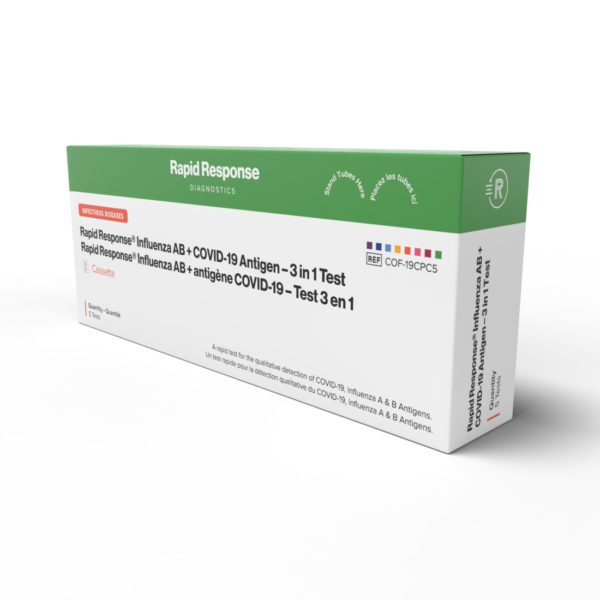How long can the flu stick around and when will you finally start feeling better?
Here’s all you need to know about that.
Understanding flu virus
The flu is a highly contagious respiratory virus caused by influenza A, B or C. It spreads through droplets from coughing and sneezing, as well as saliva from routine contact.
Symptoms start 1 to 4 days after exposure and last 5 to 7 days or one to two weeks in some cases.
However, certain groups are at increased risk for severe complications. Pneumonia can be a deadly complication for these high-risk individuals:
- Young children
- The elderly
- Those with chronic illnesses
How long does the flu last?
For most healthy people, the flu is an uncomfortable but short-term illness. Symptoms usually last 5-7 days, but it may be shorter or less severe for those who received a flu shot. To prevent the flu, get an annual flu vaccine and wash your hands regularly.
Quit smoking and promptly contact a doctor if symptoms occur.
How can I get some relief from flu symptoms?
Try taking over-the-counter medications to ease your symptoms, such as fever and body aches. These medications can provide temporary relief from the discomfort caused by the flu.
Additionally, getting plenty of rest and staying hydrated are essential for a faster recovery.
If you experience severe symptoms or a prolonged fever, it’s necessary to consult a doctor for further evaluation and treatment.

Stages of the flu
When you experience the flu virus, it progresses through different stages.
On Day 0, you may be contagious but feel fine.
Then, on Days 1-3, you’ll likely experience a sudden onset of symptoms.
Flu day 0
On flu day 0, you may be contagious but feel fine, unaware of the sudden onset of symptoms that will follow. Even though you feel okay, you can still spread the influenza virus to others.
Here are some important things to keep in mind:
- The flu is highly contagious, so it’s crucial to take preventive measures.
- Rest and stay hydrated to help your body fight off the infection.
- Over-the-counter antiviral medications can provide symptom relief, but they won’t cure the flu.
- Seek medical attention if you experience severe symptoms or if your fever lasts for more than three days.
- Antiviral drugs may be prescribed by a doctor, especially for high-risk individuals.
Days 1-3
During days 1-3 of the flu, you may experience sudden onset symptoms such as:
- Headache
- Weakness
- Dry cough
- Sore throat
- Muscle pain
It can be tough, but rest as much as possible and drink plenty of fluids to stay hydrated.
Day 4
You may notice a decrease in fever on day 4 of the flu, but the cough and sore throat may persist.
During this time, continue to rest and stay hydrated.
Here are some tips to help you through the same symptoms on day 4 of the flu:
- Drink plenty of fluids to stay hydrated and help thin mucus.
- Use a humidifier or nasal strips to alleviate congestion.
- Consult a doctor if you experience severe symptoms or prolonged fever.
- Rest at home and give your body the time it needs to recover.
The flu can vary in duration for different individuals, so listen to your body and seek medical attention if needed.
Day 5
After reaching day 5 of the flu, you may notice that your fever has subsided, but other symptoms may still persist. At this stage, it’s crucial to continue taking care of yourself and allowing your body to heal.
Resting and staying hydrated are key to a faster recovery. Remember to drink plenty of fluids and get plenty of rest. While it can be frustrating to still have lingering symptoms, be patient as your body continues to fight off the virus.
Day 6 and beyond will bring further improvements, and soon you’ll be back to your healthy self. Stay strong and keep taking care of yourself.
Day 6 and beyond
As you enter day 6 and beyond of the flu, your symptoms will continue to improve, and you can expect further progress in your recovery.
COVID-19 vs. The flu
COVID-19 spreads more quickly and is more contagious than the flu, making it a major concern for disease control and public health.
While both illnesses and influenza viruses can cause similar symptoms, such as fever, cough and body aches, there are some key differences.
COVID-19 symptoms may take longer to appear compared to the flu, and loss of smell and taste is often associated with COVID-19.
There’s also no specific treatment for COVID-19, unlike the flu, which can be treated with antiviral drugs.
Similar to the flu, those who are at a higher risk for complications of COVID-19 include:
- Pregnant women
- The elderly
- Individuals with compromised or weakened immune systems
Flu recovery tips
Resting at home is crucial for a faster flu recovery, especially if you experience symptoms like cough and weakness that can persist for up to two weeks.
Here are some tips to help you recover from the flu:
- Get plenty of rest to allow your weakened immune system to fight off the virus.
- Stay hydrated by drinking plenty of fluids like water, herbal tea and clear broths.
- Take over-the-counter pain relievers to reduce fever and relieve body aches.
- Use a humidifier or take hot showers to help alleviate congestion.
- Eat nutritious foods to support your immune system and aid in recovery.
Listen to your body and give it the time it needs to heal.
If your symptoms worsen or if you experience any severe symptoms, it’s important to seek medical attention.
When to seek help
Your health is important. Getting the right care can make a difference in your recovery.
If you experience severe symptoms or prolonged fever, seek medical attention for the flu. Antiviral drugs like Tamiflu can shorten the duration of the flu, and using a humidifier and nasal strips can provide relief from congestion.
Frequently asked questions
How long does it take for the flu to become contagious after exposure?
After being exposed to the flu, it usually takes about 1-4 days for symptoms to appear. During this time, you become contagious and can spread the virus to others. Stay mindful and take precautions to protect those around you.
Can the flu last longer than two weeks?
The flu can last longer than two weeks, but it’s not common. Most people recover within a week, but certain factors like age and overall health can affect the duration. Rest, stay hydrated and seek medical advice if needed.
Are there any specific home remedies that can help with flu symptoms?
You can find relief from flu symptoms at home with remedies like rest, fluids and over-the-counter medications. While the duration of the flu can vary, these remedies can help you feel better faster.
What are the differences in symptoms between the early stages and later stages of the flu?
In the early stages of the flu, you may experience sudden symptoms like headache, weakness, dry cough, sore throat, runny nose and muscle pain. As the flu progresses, your fever may decrease, but cough and throat pain can persist.
How does COVID-19 compare to the flu in terms of transmission and symptoms?
COVID-19 is more contagious than the flu and symptoms may take longer to appear. Loss of smell and taste is often associated with COVID-19. Unlike the flu, there’s no specific treatment for COVID-19. Pregnant women and the elderly are at higher risk for serious complications from both.























































